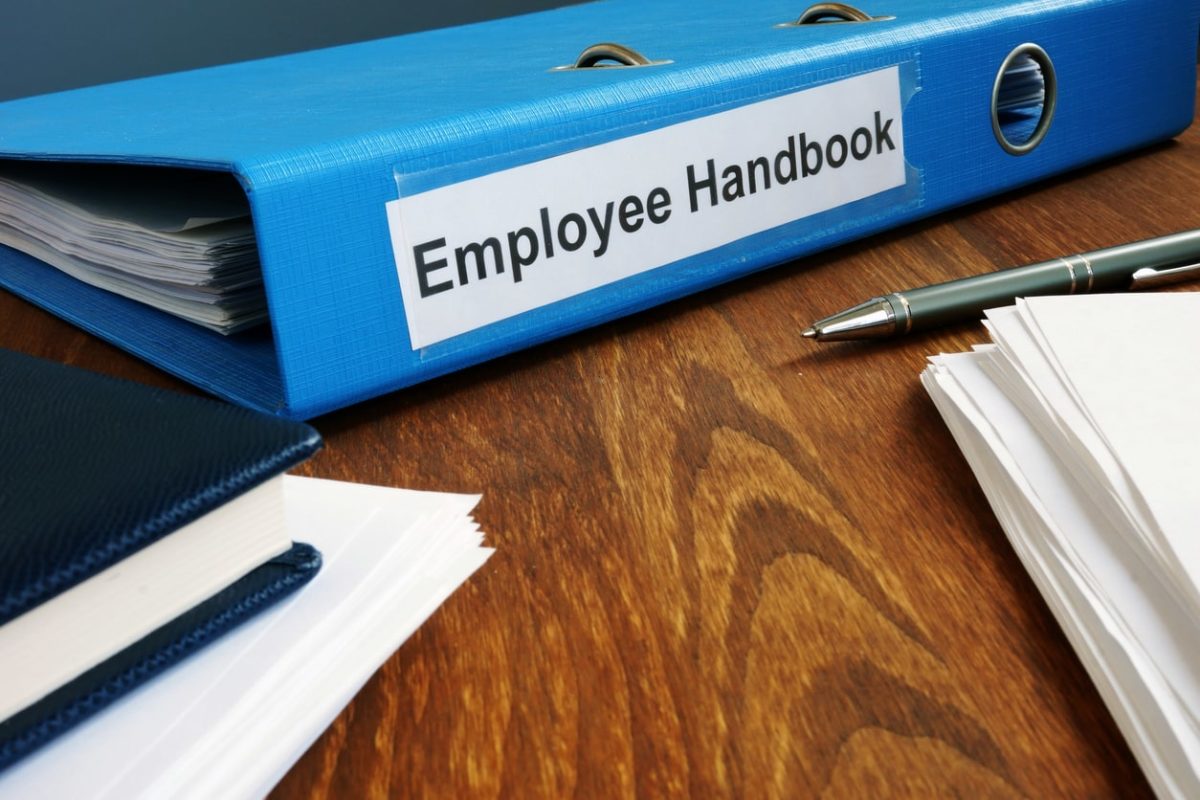
To better protect employees and businesses, it may be time for some to undergo a handbook makeover. What better time than the start of a new year (and decade!) to implement some fresh new policies, or do away with what isn’t working? We can’t ignore that some policies just don’t work out.
Another way for staffing agencies to start the new year off right is with an up-to-date, comprehensive staffing insurance program, particularly one with employment practices liability insurance (EPLI) coverage for employee-related issues. But agencies can also reduce the risk of employment claims by maintaining a modern employee handbook that accounts for some of the most important workplace policies and regulations. Here are some policies to consider adding or adjusting for an employee handbook.
Be Clear on Dress Code
Dress code policies make it easier to speak with employees who may not be following the policy and provides a better understanding of what is or isn’t acceptable workplace attire. This helps maintain a consistent approach to the issue, which will reduce any negative repercussions or future issues. The policy should be consistent with both company culture and clients’ expectations. If relevant, expectations regarding hygiene, grooming, tattoos, and piercings can be included.
One important measure is to ensure that dress code regulations are applied evenly, regardless of the employee’s gender, race, or body type. Inconsistently applying rules or discipline is a quick way to lead to an EPLI claim.
Consider a Policy on Employee Dating
While you want to encourage a friendly, comfortable atmosphere, an employee dating policy can help your company avoid distractions and office conflicts. A formal policy can help initiate the conversation and handle it professionally.
The policy is established to avoid misunderstandings, conflicts of interest, complaints of favoritism, negative employee morale and potential claims of sexual harassment. It can be stated that workplace romances are discouraged, if employees become involved, they cannot work in the same department or report to one another, and couples must keep it professional and not act like a couple at work (no PDA or fighting). It is smart to also outline the consequences for breaking these rules.
Ensure that the language in these types of policies is objective and focuses on detriments to productivity and the working environment, rather than employees’ personal lives.
Allow for Flexible Work Arrangements
A formal policy for work flexibility should be in place so that everyone is treated fairly. Careful planning and a clear policy for supervisors and employees, ensures productivity isn’t jeopardized and decisions are unbiased.
A well-written flexible work arrangement policy should define the types of job flexibility (flextime, telecommuting, compressed workweeks), who’s eligible (based on whether the arrangement meets the business needs of employees’ work environment), request and review process (how proposed flexible work arrangements gain approval and steps for all to follow), and guidelines all parties can understand.
Outline What’s Acceptable with Gifts & Favors
Gift giving and favors can quickly create a conflict of interest between vendors and employees with purchasing responsibilities, customers and sales reps, and hiring managers and job candidates.
A formal policy can provide guidance on purchasing, sales and hiring negotiations so that decisions are based purely on business interests.
The policy should mandate that agreements with vendors, customers, and/or potential employees should not be influenced by promises of gifts and favors. It should be clear what kinds of gifts what market value is acceptable. Provide where to go for guidance when needed.
Have a Proper Complaint Resolution Process
An employee complaint resolution policy and process provides a constructive way to voice concerns and allows the opportunity to address conflicts not otherwise known about, allowing to diffuse workplace distractions sooner.
If an employee relations issue erupts, a complaint-resolution policy can help a company defend itself in the event an employee files a regulatory charge or lawsuit.
An appointed qualified person or committee should be the primary point of contact for handling employee complaints. Include steps employees should take prior to filing a complaint and explain how complaints are investigated and handled.
About World Wide Specialty Programs
For the last 50 years, World Wide Specialty Programs has dedicated itself to providing the optimal products and solutions for the staffing industry. As the only insurance firm to be an ASA commercial liability partner, we are committed to that partnership and committed to using our knowledge of the industry to provide staffing firms with the best possible coverage. For more information about Staffing Professional Liability Insurance or any other coverage, we have available to protect your staffing business, give us a call at (800) 245-9653 to speak with one of our representatives.


